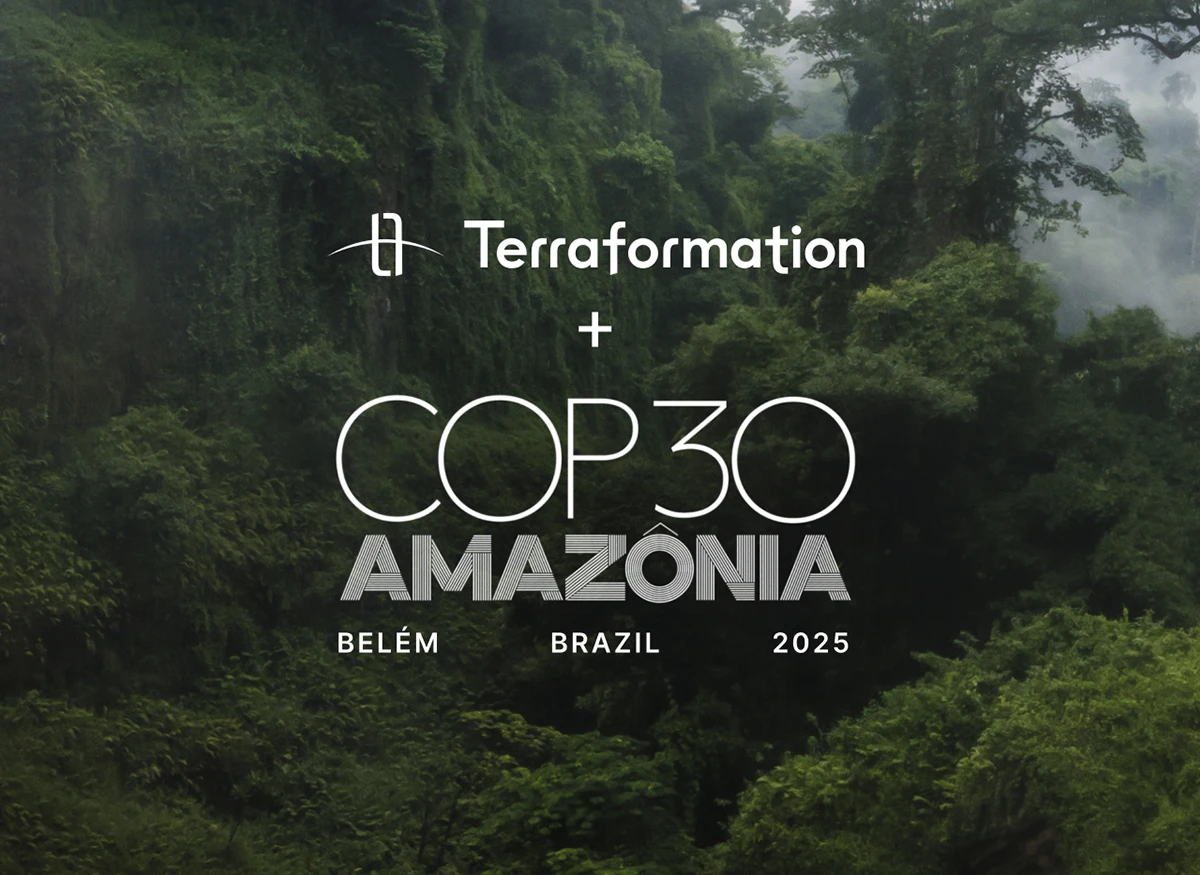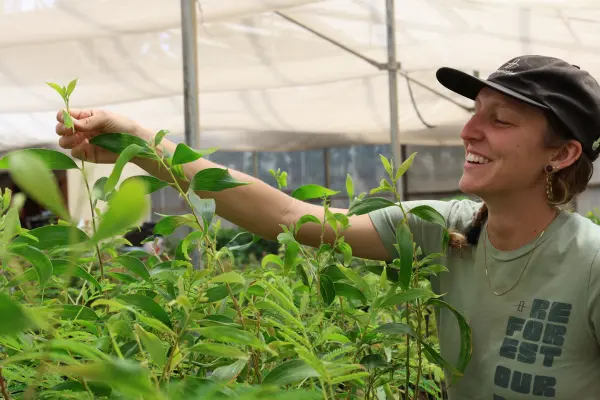From Privilege to Progress: The Role of the 1% in Creating a Regenerative Planet

Climate change is a high adaptation cost for the developed world, but an existential crisis for the majority of humanity. It is fundamentally unjust: the people most at risk bear very little responsibility for the destruction and loss they will increasingly face. Meanwhile, industrialized nations have literally burned through millions of years of naturally stored energy to achieve their economic state, with Europe and the US leading the way.
The greatest beneficiaries of this are the wealthiest 1%, who have amassed $26 trillion in new wealth just since 2020. Many are also limited partners in a wide variety of funds and investment vehicles, positioning them for even greater increases.
Importantly, this same group is responsible for 16% of global emissions and more carbon than collectively over 5 billion people (66% of the planet). Under these circumstances, their responsibility in mitigating climate change has never been more critical.
And the urgency of implementing large-scale solutions grows greater every day. The goal of the Paris Agreement to limit warming to 1.5℃ is impossible at this point, whether or not we are willing to admit it. We are on track for 3℃ of warming by 2100, a number likely to set off a chain of environmental, political, and social events that are difficult to envision, let alone grasp.
Although insulated in many ways, the 1% share this planet too, and for the most part depend on the same supply chains and infrastructure as the rest of us. Thus, this elite group finds itself at a crossroads: invest a fraction of their gains into combatting this urgent crisis, or face the wrath of a warming planet.
Fortunately, many of the best climate solutions are shovel-ready and scalable with sufficient funding. With opportunities in renewable energy, sustainable agriculture, reforestation, and forest conservation, the market offers these investors the power to pivot the course of our environmental destiny.
Many opportunities, but priorities matter
The most recent report of the Intergovernmental Panel on Climate Change (IPCC), authored by over 3,000 of the world’s top scientists, ranks over 40 categories of opportunities for net emissions reduction by 2030. High on the list are renewable energy solutions such as wind and solar — obvious and critical efforts to avoid emissions that our energy system would otherwise lock in, and thankfully ones that have shown enormous progress to date.
Yet among the top five, three are nature-based solutions that use forests and agricultural land to mitigate climate change. Collectively, these represent the largest opportunity we have. Unlike investments in renewables that avoid emissions, opportunities like ecosystem restoration are clear carbon removals that lock away carbon in soil and biomass when degraded land is converted back into a thriving forest.
But when government financing is slow and limited, how do these projects get off the ground? The answer is venture capital. Venture capital (VC) exists to catalyze innovation — planting seeds in the fertile ground of disruptive technology with the hope of cultivating solutions to the world's most pressing problems. And there is not a bigger problem for all of life on Earth than climate change.
The essence of VC is not just in seeking returns, but in fueling progress in areas where disruption unlocks tremendous market potential. This ensures that the majority of capital flows not toward the paths well-trodden, but to the ventures bold enough to make a real difference. It's within these ventures that the potential can be found to redefine industries, uplift communities, and protect our planet.
Venture capital: Currently missing both the forest and the trees
Even the boldest investors, however, hope to see a return — ideally within seven years. Paradoxically, the majority of investments in climate tech since 2020 have flowed to categories with only middling climate potential. Despite their low positions on the IPCC list, e-scooters and fake meat have attracted far more venture capital than less “fun” but far more impactful solutions like industrial fuel switching (number 6 on the list).
Why would this be, when better opportunities exist to solve more urgent problems — and potentially drive larger profits? It's because of the tendency among venture capitalists to invest in the hottest trends in the tech and software marketplaces that can easily scale to show double-digit monthly recurring revenue growth. For climate, though, the solutions are not in the cloud, but in the dirt.
We need to think bigger — and smarter — by directing capital toward the top of the list rather than allowing ourselves to get distracted by the shiny objects toward the bottom. Solar and wind investment, thankfully, have been so obvious as strong solutions that adequate equity capital and project finance have moved to that sector over the past decade. It’s time to look at ecosystem restoration in the same way.
Setting a new standard for climate action — equitably
These experiences in the VC world drove me to start Wovoka, a company whose core mission is to work hand in hand with Indigenous and local communities to develop nature-based carbon removal projects.
Named for a Paiute leader renowned for his vision of sustainable land stewardship and native community empowerment over a century ago, our company pays homage to his vision for the next century of empowering communities to cultivate biodiverse forests and ensure their land thrives for generations.
And the need for this work is profound. In the Philippines, the decline of native ecosystems poignantly illustrates the missed opportunities and the potential for change. Once cloaked in lush forests, the country now bears the scars of deforestation, with forest cover plummeting from approximately 70% to less than 25% over just one human lifetime.
The reason for this is straightforward: local policies and global economic incentives that didn’t place value on ecosystem services. For similar reasons, mangrove habitat, the world’s best natural carbon asset, has declined more than 50%. It's a stark reminder of what happens when economic models neglect nature.
Unlocking restoration potential through local expertise
Yet within this crisis lies immense potential. Millions of hectares await restoration, particularly in community-based forest management areas, presenting a chance for significant climate action. Globally, Southeast Asia has the largest share of mangrove habitat, which stores carbon up to 10x faster than terrestrial forests and up to 5x the carbon volume per hectare. In this context, the work of organizations like Wovoka in Southeast Asia becomes crucial.
Our operating company in the Philippines has Filipino majority ownership, a female COO with years of scientific field work in these ecosystems, and a Manila-based team trained in conservation science at the graduate level from local universities. With a focus on local empowerment and scientific rigor, Wovoka offers a blueprint for how ecosystem restoration should be approached. It's a model rooted deeply in principles of climate justice.
This calls for the emergence of a new type of carbon market — one that truly supports ecosystem restoration and climate justice, led by the scientists and conservationists of the countries where the projects are located. This would represent a shift in global power dynamics toward a more equitable and sustainable approach to tackling climate change.
It's not just an environmental imperative but a moral one, offering us an opportunity to build a resilient, sustainable future for our planet.
Leveraging wealth with the future in mind
In 2019, in the midst of numerous life changes and challenges, I set out on a thru-hike of the John Muir Trail, a journey of over 200 miles through California’s Sierra Nevada mountain range. The experience brought renewed appreciation not only for the grandeur of the natural world, but for the human comforts of the one we have built. Things as simple as running water and cooked meals become luxuries when we strip our lives down to the most basic necessities.
But we are now facing the increasingly realistic prospect of an uninhabitable planet — one on which both nature and the basic conditions of survival will be challenged in unprecedented ways. This is a preventable disaster, one within the power of the wealthiest 1% to mitigate or even reverse. They can achieve this monumental goal if they use their capital in investable projects that can drive a return in a carbon-priced world and clearly serve the collective good.
Yet, should they choose to pass on these opportunities, ignoring the escalating climate emergency, they risk being the architects of their own downfall. As millions face displacement and the specter of climate-induced turmoil threatens to obliterate trillions in global capital, the message is unequivocal: the time for the 1% to act is not tomorrow, but today.
A call to invest in our climate future
Globally, a net worth of just over $1M places an individual in the top 1% of wealth of all people on Earth. While I certainly do not feel rich in California, I am in the global 1%. For those who are wealthy relative to the rest of the world but far below the net worth of most venture capitalists, our everyday responsibilities toward our planet include pushing companies to meet decarbonization targets and voting with climate justice in mind.
But for the many asset allocators of the world with diverse portfolios spread across global markets, the need to invest in nature is an imperative. Our failure to leverage our wealth for good could ignite a revolutionary backlash, the likes of which could redefine the boundaries of wealth and power in a climate-conscious world.
The choice is stark: invest in the planet's future now, or brace for violent upheavals precipitated by ecological collapse. The shovel is in our hands. It can be used to dig a grave or plant a tree. For those uniquely positioned to invest in bold solutions, now is the time to put that capability to its best use: plant trees.
About the
Series:
Who Will Speak For The Trees?
At a time when human economic development is prioritized over the needs of nature, the Who Will Speak for the Trees? series features top reforestation leaders with a broad range of restoration expertise, including climate tech, monitoring, science, finance, media, and more. These diverse voices offer expert viewpoints to instill confidence in how humanity can support nature to deliver a forested future for all living things on Earth. Join us for this ongoing series to learn more about the science of reforestation and how restoring ecosystems is part of a comprehensive climate solution.
















